What Makes
CMMI Appraisal Necessary for Software Development Companies ?
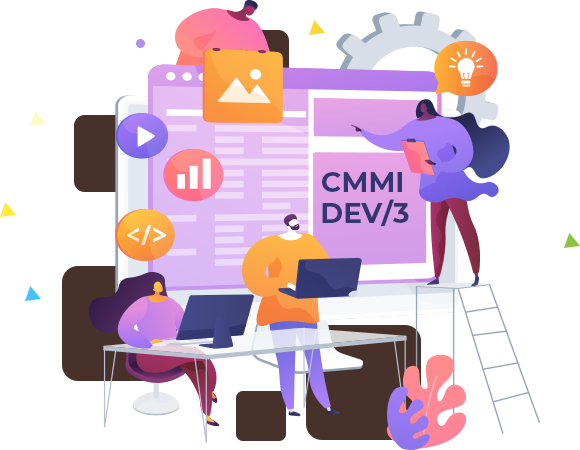
What Makes CMMI Appraisal Necessary for Software Development Companies?

During software development, your product is only as good as the procedures used for developing it. Software Process is a critical success factor for any software development company irrespective of your goal- competing in the marketplace or satisfying internal requirements. Improvements that are planned and well thought of significantly contribute to your organization’s performance. Enhancements in the overall structure should always be a priority whether your productivity is resting comfortably in a profit-earning stage or actively looking for bottlenecks.
It is why Capability Maturity Model Integration (CMMI) certification is essential for software development consulting firms. Created and maintained by Carnegie Mellon University, CMMI certification is highly imperative for software development companies to satisfy growth demands and gather more government contracts.
So, What is CMMI Certification?
The CMMI certification serves as a process improvement standard for a software development company- across enterprise-level or single projects. It was introduced by Carnegie Mellon University and initiated by the US Department of Defence in 2016. However, it is now developed into a must-have for software development firms.
It is a process and behavioural model that helps organizations streamline process improvement, enhance productivity, result in efficient behaviours that decrease software risks, products, and encourages services development. A custom software development company with a CMMI certification entails knowing the essential elements of making business processes efficient and effective.
The CMMI certification is composed of three capability levels and five maturity levels. It consists of generic and specific processes based on which organizations are rated. The several points of interest for a CMMI certification are:
- CMMI for development of products and services: CMMI-DEV
- CMMI for service management and formation: CMMI-SVC
- CMMI for products and services acquisition: CMMI-ACQ
What Makes CMMI a Must for Software Development Firms?

CMMI is more of a hierarchy and behavioural model. It comes in handy to a software development company when trying to develop benchmarks and make the environment more conducive and healthier. It is more of a guidance system for process development for organizations who want to deliver a high-quality product. CMMI standard ensures project consistency, which by extension means less money spent on detecting errors, less human indulgence in removing bugs, and less remediation.
Since CMMI certification is internationally accepted, companies that adhere to such maturity levels are better positioned to function in the market or forge successful partner vendors. As a custom software development firm, if you seek more international contracts, you must consider accomplishing the CMMI certification.
Also, CMMI maturity levels differentiate you from the rest of the local competitors. It is a great way to ensure you’re on the right path, adopt cutting-edge technologies, and maintain consistent capabilities in these performance levels.
In a nutshell, CMMI certification defines your standard process framework, ensuring that you don’t just practice the best process improvements but do so for the long term. Moreover, implementing CMMI reduces employee turnover since your processes are embedded inside the company rather than an individual’s experience and skillset.
The Benefits of CMMI Certification
CMMI certification defines the maturity of a company. It means that you are a trustworthy resource and will perform tasks that are up-to-mark. For a software development company to fall in line with the international standards, you need to meet the CMMI level specified by the vendor.
Process Consistency:
CMMI certification allows organizations to drive tangible benefits in terms of improved project predictability and consistency. No matter why a custom software development company requires the CMMI certification for, it directs your focus towards delivery consistency once the model has been implemented.
Cost Savings:
CMMI certifications result in earlier and effective error detection, which reduces remediation costs. It restructures better and more effective change management so that your workforce spends less time on re-work, increases cost predictability, and reduces schedule variability.
Market lead and reputation improvement:
Software development consulting firms that possess CMMI certification can differentiate themselves from the competition. CMMI naturally improves your business processes and leads to driving significant value to your business processes. With the customer market becoming impenetrable, CMMI becomes your weapon in disguise, one that improves your existing infrastructure and readies you for the future. That is why from development to service providers and outsourcing/acquisition companies are willing to adopt CMMI as a critical differentiator and an enabler of high performance.
Huge market demand:
Organizations utilizing CMMI to improve upon their industry practices reap several benefits out it. They adopt this approach not just to meet international demands or bid for global projects but to fulfil customer needs as well. With the growing popularity of the CMMI maturity levels, several software development firms try to comply with international standards. To exist in this supply chain, companies must either abide by such certifications or lose the race in the process.
Performance demands:
The idea of introducing CMMI certification is to enhance the existing performance levels and achieve high organizational standards. Organizations can improve on the capability to consistently and predictably deliver products and services that put them on the map. Organizations apply CMMI as a process improvement solution and help them achieve their performance goals.
Process Improvement:
A CMMI-driven improvement project delivers a framework that is standardized as per the processes. Such certifications ensure that your business is in the best practices so that even if your staff resigns, they won’t make any critical business information with them. CMMI includes several different processes that cater to a comprehensive business process improvement solution. Each of these processes comprises two goals, two practices, and information that helps forge successful strategies.
The CMMI Maturity Level Characteristics
Under the CMMI methodology, different processes decipher their maturity levels. These are defined as initial, defined, quantitatively managed, and optimizing.
-
Level 1: This is the initial stage in which the processes are unpredictable, reactive, and poorly controlled.
-
Level 2: the managed level, the processes are characterized for reactive projects.
-
Level 3: Called the defined stage, the procedures are tailored as per the organization’s proactive standards.
-
Level 4: Called the quantitatively managed stage, all the processes, and solutions are managed and controlled here.
-
Level 5: Called the optimizing stage, it focuses on process improvement.
The CMMI model details an organization’s work, the functions it needs, and how they interact. It explains the discrete elements in an organization and how it helps formulate a discussion on what needs reform and how to achieve it. Therefore, a CMMI model
- leverages your years of experience
- helps users focus on process improvement
- provide a common framework and language to communicate
- serves as a standard to help solve disagreements
- Receive support from trainers and consultants
Conclusion

A mature organization permanently recognizes its roles and responsibilities for business success and how it can accomplish such goals. What an organization receives out of process deployment and CMMI certification reflects its actual image. With a CMMI-enabled high maturity, organizations can focus on attaining process performance goals and put them in a position to succeed.
Featured Articles
Latest Articles

Why Businesses Prefer Flutter App Development Companies Over Native Development Teams
Why Businesses Prefer Flutter App Development Companies Over Native Development Teams When businesses plan to build a .. Read More
By Abhinav Kumar | Feb 11, 2026

Cost Savings and Quality: The Value Proposition of Web Application Offshore Development
When it comes to building robust, scalable web applications, businesses are increasingly looking beyond borders to find .. Read More
By Abhinav Kumar | Jan 13, 2026

Emerging Trends in Custom Web App Development for 2025 and Beyond
The world of apps is growing faster than ever. According to Statista, the global mobile app market is expected to reach .. Read More
By Abhinav Kumar | Jan 13, 2026

Comparing Offshore vs. Onshore Software Development Companies: Pros and Cons
Today’s enterprises are casting a wider net when it comes to building their software solutions. In the last fiv .. Read More
By Abhinav Kumar | Sep 11, 2025

How App Development Companies Ensure Your App Stands Out in a Crowded Market
As of June 4, 2025, the mobile app ecosystem has never been more crowded. Google Play hosts a staggering 2,031,61 .. Read More
By Abhinav Kumar | Sep 11, 2025

Why partnering with an offshore web development company can boost your business growth
Picture this: you’re leading a growing enterprise with big digital goals, maybe a global eCommerce rollout or a .. Read More
By Abhinav Kumar | Sep 10, 2025

How to Build Effective and Scalable Web Applications – The Best Practices
A big part of any web application development is its capacity to scale in the later growth stages. Irrespective of the p .. Read More
By | Oct 22, 2021
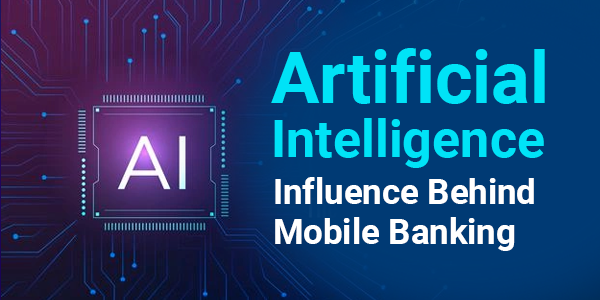
How Artificial Intelligence in Mobile Banking is a Game-Changer?
Let’s start this discussion with a simple question, how many of you still stand in queues outside banks just to get ge .. Read More
By | Oct 14, 2021

Utility mobile application development role in the digital transformation
What is utility mobile application development and why it matters?At this point, mobile applications have become an inal .. Read More
By | Oct 11, 2021

How to build a successful and agile offshore development team?
As a global trend, outsourced software development holds a market size of $92.5 billion, and a significant chunk of .. Read More
By | Sep 30, 2021
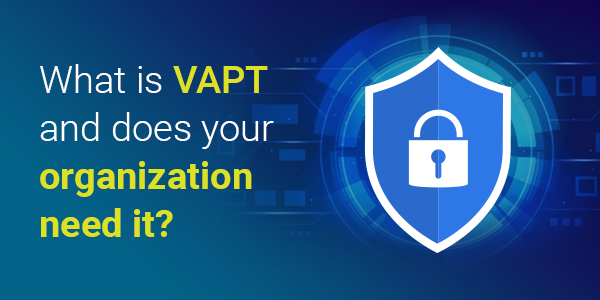
What is VAPT and does your organization need it?
What is VAPT and does your organization need it? To no one's wonder, there is a flood of applications and softwar .. Read More
By | Sep 08, 2021

The top 11 FinTech trends to achieve digital transformation
The top 11 FinTech trends to achieve digital transformation Similar to other industrial verticals heavily impacte .. Read More
By | Sep 08, 2021
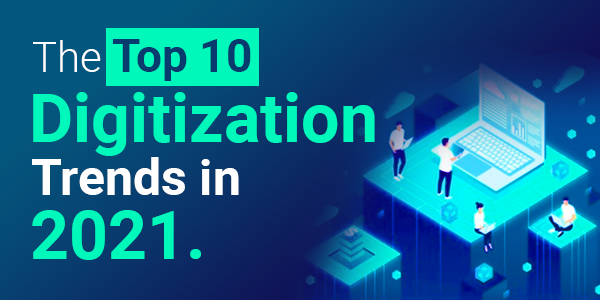
The Next Normal: The Top 10 digitization trends for enterprises in 2021 and beyond
The Next Normal: The Top 10 digitization trends for enterprises in 2021 and beyond Nobody knew where 2020 and 202 .. Read More
By Monu Kumar | Sep 07, 2021
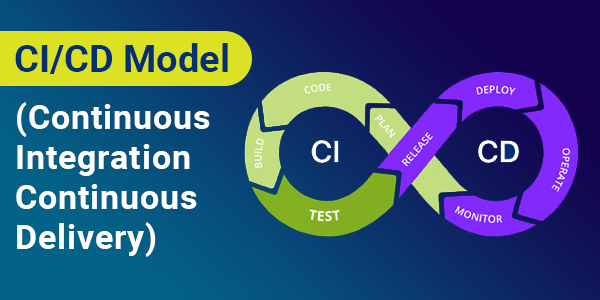
CI/CD Model: what and why it matters in software development
CI/CD Model: what and why it matters in software development There was a time when software development wa .. Read More
By | Jun 08, 2021

What Is Legacy Migration and Why to Consider It
What Is Legacy Migration and Why to Consider It? Software technologies and applications are on the road to an ine .. Read More
By Monu Kumar | May 25, 2021

What Makes CMMI Appraisal Necessary for Software Development Companies ?
What Makes CMMI Appraisal Necessary for Software Development Companies? During software development, your product .. Read More
By | May 10, 2021
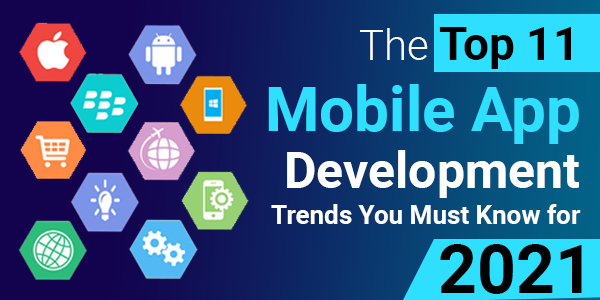
The Top 11 Mobile App Development Trends You Must Know for 2021
The Top 11 Mobile App Development Trends You Must Know for 2021 We all have so many expectations from 2021, don� .. Read More
By | May 04, 2021
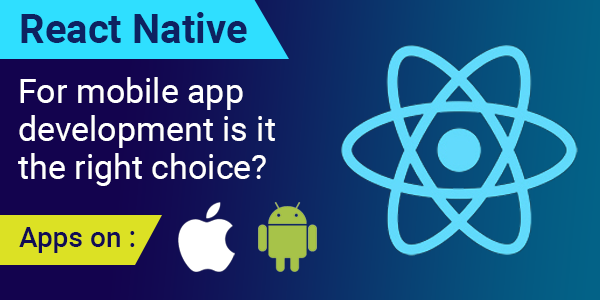
2- Why to choose react native for mobile app development project?
React Native for mobile app development: Is it the right choice? For the 21st century, mobile phones are like sou .. Read More
By | May 04, 2021

How Digital Transformation Impacts Software Development Services
Digital Transformation and its impact on Software Development Lifecycle Today's industrial landscape ta .. Read More
By Monu Kumar | May 03, 2021

What is the right price for developing a mobile app?
What is the price to develop an iPhone app? Or rather, how much does mobile app development cost? Well, Kudos to you bec .. Read More
By Monu Kumar | Apr 07, 2021

Should I use Flutter for my next Mobile App Development project?
So, what was the mobile app development story before Flutter? Let's consider mobile application develo .. Read More
By Monu Kumar | Mar 17, 2021
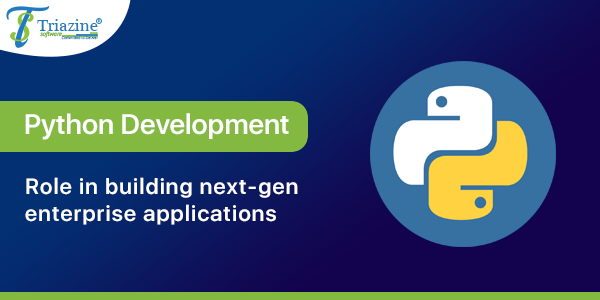
Understanding Python Development Services and their role in building next-gen enterprise a..
From being awarded the best programming language for development to replacing the stardom held previously by Java., Pyth .. Read More
By Abhinav Kumar | Feb 23, 2021

Is there any right pricing strategy for mobile app development?
No phrase can appropriately describe the accelerating mobile app development market! Definitely, it is on a consistent b .. Read More
By | Feb 22, 2021

Mobile App Development: Freelancer or a Software Development Company
So, you’ve decided to build software, and now you’re faced with the debatable and inevitable question: software dev .. Read More
By Monu Kumar | Jan 21, 2021

Hybrid Mobile App Vs. Native Mobile App… Am I Making A Right Choice?
This seems to be a million-dollar question when it comes for making a choice between hybrid mobile app or native mobile .. Read More
By | Jan 11, 2021

5 trends that will be influencing mobile app development in 2019
We live in a smartphone-driven world and mobile apps are now an integral part of our lives. From day-to-day commute to g .. Read More
By | Jun 11, 2019
Recent Articles
Why Businesses Prefer Flutter App Development Companies Over Native Development Teams
Cost Savings and Quality: The Value Proposition of Web Application Offshore Development
Emerging Trends in Custom Web App Development for 2025 and Beyond
Driving Successful Digital Transformation: A People-Centric Approach
